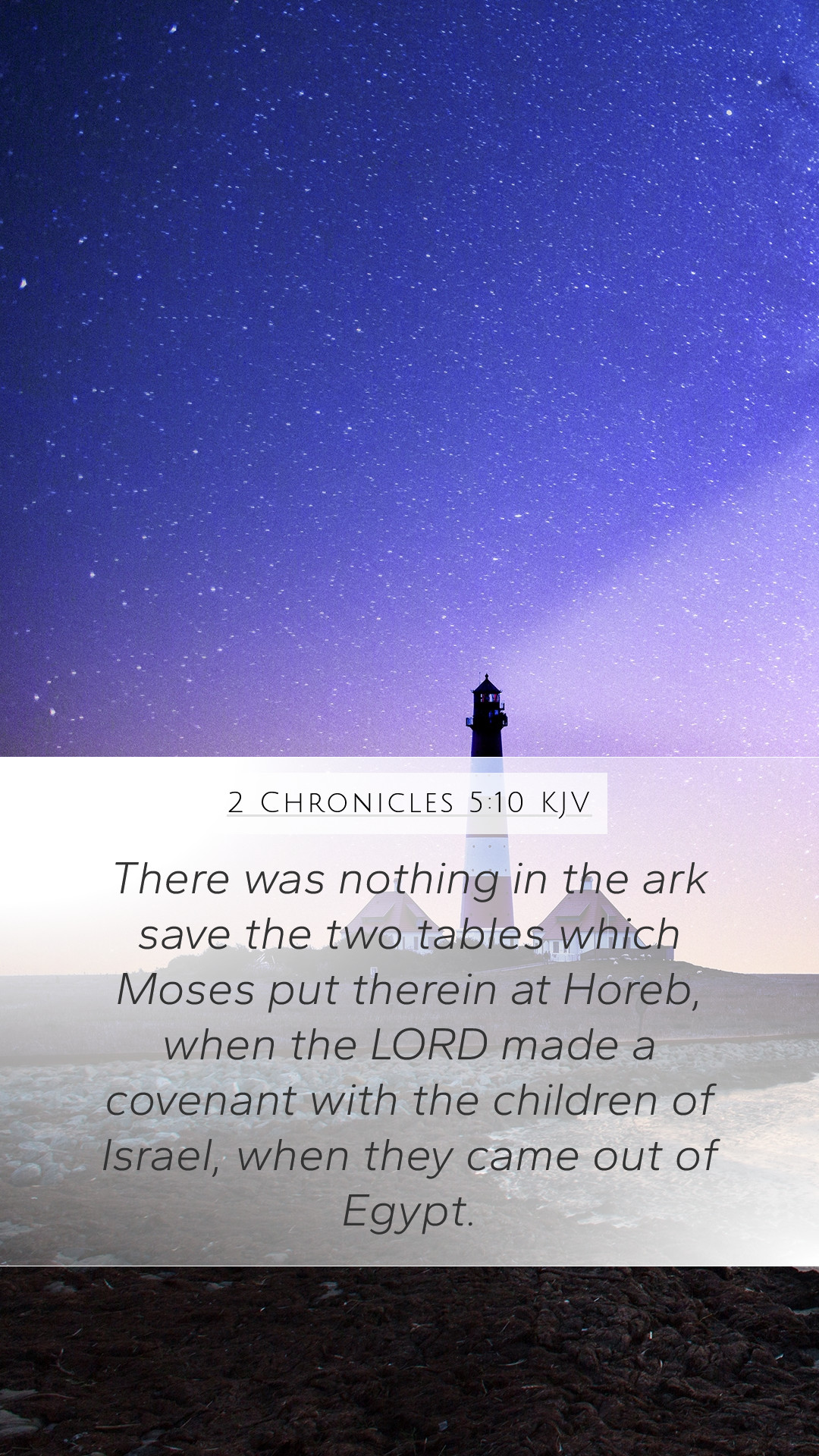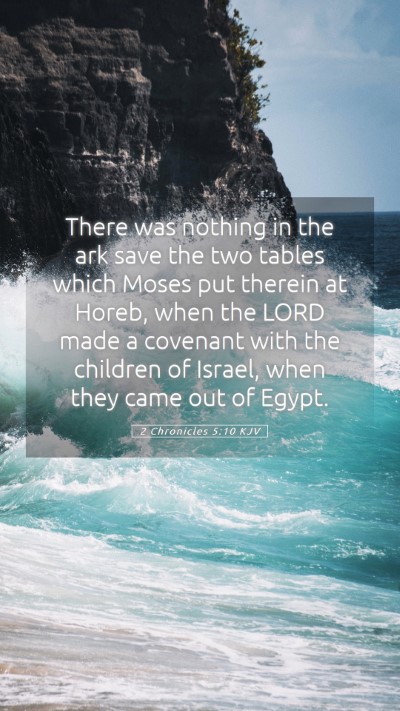Understanding 2 Chronicles 5:10
Bible Verse: 2 Chronicles 5:10 - "There was nothing in the ark save the two tables which Moses put there at Horeb, when the Lord made a covenant with the children of Israel, when they came out of Egypt."
Summary and Context
The passage from 2 Chronicles 5:10 reflects a significant period in the history of Israel, specifically concerning the Ark of the Covenant. The verse clarifies that, at the time of the temple dedication, the only contents of the Ark were the two stone tablets, which represented the covenant between God and Israel made at Mount Sinai. This moment emphasizes God's enduring commitment to His people and the special relationship established through the Law.
Insights from Commentaries
-
Matthew Henry's Commentary
Henry highlights the importance of the Ark of the Covenant as a symbol of God's presence among His people. He points out that the absence of additional items in the Ark underscores the primacy of the Law in the relationship between God and Israel. The tablets not only contain legal guidelines but also represent God's terms of engagement with His people, illustrating that obedience to the covenant is essential for maintaining divine favor.
-
Albert Barnes' Notes on the Bible
Barnes focuses on the historical significance of the tablets, elaborating that they are reminders of the covenant established by God with Israel at Sinai. He notes that the mention of the tablets in the Ark serves to authenticate the temple's role as a locus of divine presence and worship, reinforcing the centrality of God's Law to Israel's identity and worship practices.
-
Adam Clarke's Commentary
Clarke discusses the implications of the phrase "nothing in the ark save," indicating the profound understanding that the tablets alone carry immense weight in the covenantal relationship between God and Israel. He explains that during the transition from the Tabernacle to the Temple, the nature of worship evolved, but the essence of the covenant remained unchanged. The verse acts as a bridge, connecting Israel's past experiences in the wilderness with their new identity as a settled nation.
Application of the Verse
This verse has profound implications for both historical understanding and personal application. It invites readers to consider the significance of the Law in their spiritual lives and the importance of commitment to God's commands. In a modern context, believers can reflect on the relevance of Scripture in guiding their moral and ethical choices.
Key Themes
- The Covenant: Emphasizes God’s promise and the conditions that shape the Israelite community.
- Obedience: Encourages believers to value and adhere to God’s commandments as central to their faith.
- God’s Presence: Reinforces the notion that God dwells among His people, particularly in places of worship.
Cross References
- Exodus 25:16 - Instructions regarding the Ark of the Covenant.
- Deuteronomy 9:9 - Moses receives the tablets from God.
- 1 Kings 8:9 - The Ark in the Temple during Solomon's dedication.
- Jeremiah 31:33 - Prophecy of a new covenant with God's people.
- Hebrews 9:4 - Description of items in the Ark, including the tablets.
Conclusion
2 Chronicles 5:10 serves as a vital link in understanding the relationship between God and His people through the lens of the Ark of the Covenant. By analyzing this verse, believers can deepen their understanding of Scripture and how the principles embedded in these ancient texts continue to resonate in contemporary faith practice. The reminders of God’s promises encapsulated in the Law inspire ongoing study, reflection, and application in daily life.
Further Study Suggestions
For those interested in exploring more about this scripture, consider joining bible study groups, utilizing bible study tools, or participating in online bible study courses that delve into interpretative methods. Resources such as bible study guides and bible study lessons can bolster understanding and application of biblical texts.


